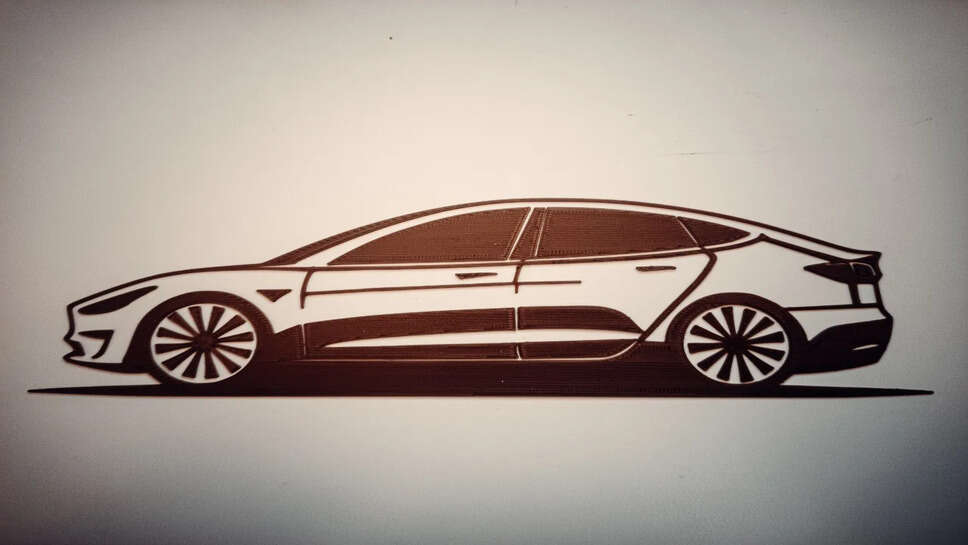Electric Dreams Realized: Tesla’s Model Y Makes Mumbai Debut

In a move that has been long anticipated by electric vehicle enthusiasts and industry observers alike, Tesla has officially begun its journey into the Indian market. The electric vehicle giant, led by billionaire entrepreneur Elon Musk, has selected Mumbai as the launchpad for its flagship Model Y SUV, marking a pivotal milestone in India’s transition towards sustainable mobility.
The Road to India: A Long Time Coming
Tesla’s arrival in India has been the subject of speculation, excitement, and delay for years. Talks between Tesla and the Indian government have faced hurdles—mostly around import duties, local manufacturing expectations, and infrastructural readiness. However, recent policy reforms, tax relaxations, and India’s push for electric vehicles have paved the way for Tesla’s entry.
The company’s decision to debut with the Model Y in Mumbai is a calculated one. Mumbai, as India’s financial capital, boasts a rapidly growing premium car market, higher EV awareness, and better charging infrastructure compared to most Indian cities. Moreover, the city has an affluent consumer base that is likely to be among the early adopters of Tesla’s offerings.
Why Model Y?
The Model Y, a compact electric SUV, is currently one of Tesla’s best-selling vehicles globally. Its appeal lies in its blend of performance, practicality, and high-tech features. With a range of over 500 kilometers on a single charge (in its Long Range variant), autopilot capabilities, and a minimalist interior, the Model Y aligns well with the preferences of urban Indian consumers looking for luxury with sustainability.
Unlike the Model S or Model X, which are far more expensive and niche, the Model Y strikes a balance between affordability and aspiration, making it a smart choice for Tesla’s India debut. Reports indicate that Tesla will bring the vehicle initially as a Completely Built Unit (CBU), while exploring local assembly or even a manufacturing plant in the near future.
Infrastructure and Ecosystem
Tesla’s entry is expected to catalyze the growth of India’s electric vehicle ecosystem. Mumbai has already begun expanding its EV infrastructure with more public charging stations, especially in commercial and high-income residential areas. Tesla is also in the process of setting up its Supercharger network in major Indian metros to offer the kind of seamless charging experience that its global customers enjoy.
The Maharashtra government has been a vocal supporter of EV adoption and is likely to offer incentives and policy support to attract Tesla to establish a deeper footprint in the state. There are already discussions underway to allocate land and provide subsidies for a possible Tesla facility in or around Mumbai.
Regulatory Support and Policy Climate
Tesla’s decision comes on the heels of India’s renewed focus on electric mobility. The central government has recently announced a policy that lowers import duties for EV manufacturers who commit to local production within a few years. Tesla is reportedly one of the first global giants to benefit from this new framework.
This entry is also symbolic of India’s ambition to become a global EV manufacturing hub, especially as Western firms look to diversify supply chains away from China. Tesla setting up operations in India not only boosts investor confidence but could potentially bring a host of component manufacturers and ancillary industries along with it.
The Indian Market: High Potential, Unique Challenges
While Tesla’s brand value and innovation are unmatched, the Indian market is a unique beast. Price sensitivity, service network expectations, road conditions, and consumer mindset pose significant challenges. Tesla will need to tailor its strategy to match Indian conditions — perhaps by offering region-specific features, enhanced after-sales support, and localized software integrations like voice support in Indian languages and navigation tuned for Indian roads.
Moreover, affordability will be key. Even with tax relaxations, the Model Y is likely to cost between ₹55-₹70 lakhs in India — making it a premium purchase. This is a sharp contrast to the growing demand for EVs under ₹20 lakhs. For Tesla to truly scale, it may need to eventually introduce its upcoming budget model — the rumored $25,000 EV — to India.
Customer Anticipation and Market Response
Unsurprisingly, the announcement has sent ripples across the Indian auto industry and among consumers. Pre-bookings for the Model Y are expected to open soon, with select Tesla Experience Centers planned in Mumbai, Delhi, and Bengaluru. Social media is abuzz with users sharing their excitement, speculating on pricing, and discussing charging logistics.
Traditional carmakers like Tata Motors, Mahindra Electric, and even international players like Hyundai and MG have started re-evaluating their strategies in response to Tesla’s arrival. The competition will now likely focus on not just price, but also software features, charging experience, and sustainability credentials.
What's Next for Tesla India?
Tesla’s India debut with the Model Y is just the first lap in what promises to be a long and transformative journey. The company is expected to follow up with other models such as the Model 3, Cybertruck, and even Tesla Energy solutions like solar panels and Powerwall systems. A local Gigafactory could also be on the horizon, depending on the success of the initial roll-out and the regulatory climate.
The broader goal seems to be more than just selling cars — it’s about shaping India’s EV landscape. Whether it's influencing charging infrastructure, encouraging renewable energy adoption, or changing consumer perceptions about electric vehicles, Tesla's presence will leave a lasting impact.
Tesla’s official entry into India, starting with the Model Y in Mumbai, marks a significant moment for both the company and the Indian automotive sector. It signals a shift in how electric vehicles are perceived — from experimental to aspirational, and now potentially mainstream. As the country accelerates toward a greener future, the Tesla-Mumbai connection could well become the ignition point of a much larger EV revolution in India.
